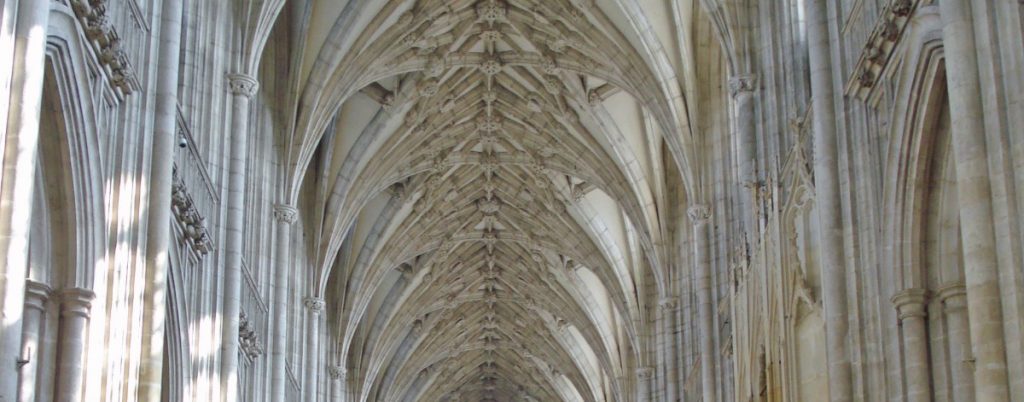
In the year 2000 The Souls of the Righteous was privately commissioned as a memorial to a member of the congregation at Winchester Cathedral, who for over thirty years had travelled regularly from Folkestone in Kent to share in its worship and to hear Winchester Cathedral Choir under its erstwhile Master of Music, Dr David Hill. This motet sets words which turned out to have been in the minds of both composer and commissioner before either had specifically suggested any text to the other. The music was first heard in Winchester Cathedral on 20 May 2000. The tenor solo part was sung by (and, at the commissioner’s request, especially conceived for) William Kendall, who marks his own thirtieth year as a serving member of the Choir in 2005 and enjoys also a solo career of international distinction. It was he who had effected a meeting of commissioner and composer. Subsequently he has sung the solo part during a BBC broadcast of Choral Evensong and also on a CD release of the work by the choir Tenebrae, conducted by Nigel Short [Signum Classics, SIGCD 501].
Although a member of Winchester Cathedral Choir myself (1991-2001), sadly I had not had the privilege of knowing Sheila Bushnell, to whom the music is dedicated. This seemed to augment an already daunting compositional responsibility. In the event, two memories guided my response. One was that of the sublime setting of these words in Latin [Justorum Animae] by William Byrd, known and loved from the moment when I first encountered it as a chorister at New College, Oxford, in the late 1960s. Though lighting the humblest of candles beside such work, the present setting may at least claim as its point of departure some generalised glimpse into the spiritual and musical sensibility of Byrd. My second prompting, more personal and, in the end, perhaps more pertinent still, is the cherished memory of my own parents. Whatever the merits or otherwise of these compositional results, I hope that a certain authenticity of feeling may be found in them, as happily it was by the commissioner, who has wished to remain anonymous but who welcomed disclosure of so personal a perspective.The Souls of the Righteous stands, then, partly as a private tribute to two people known and loved, but primarily –and in some curious sense, more poignantly –to Sheila and to those whom the poet Matthew Arnold identifies for us as
‘The friends to whom we had no natural right,
The homes that were not destined to be ours’.
(c) Francis Pott 2005
Reproduced with permission
